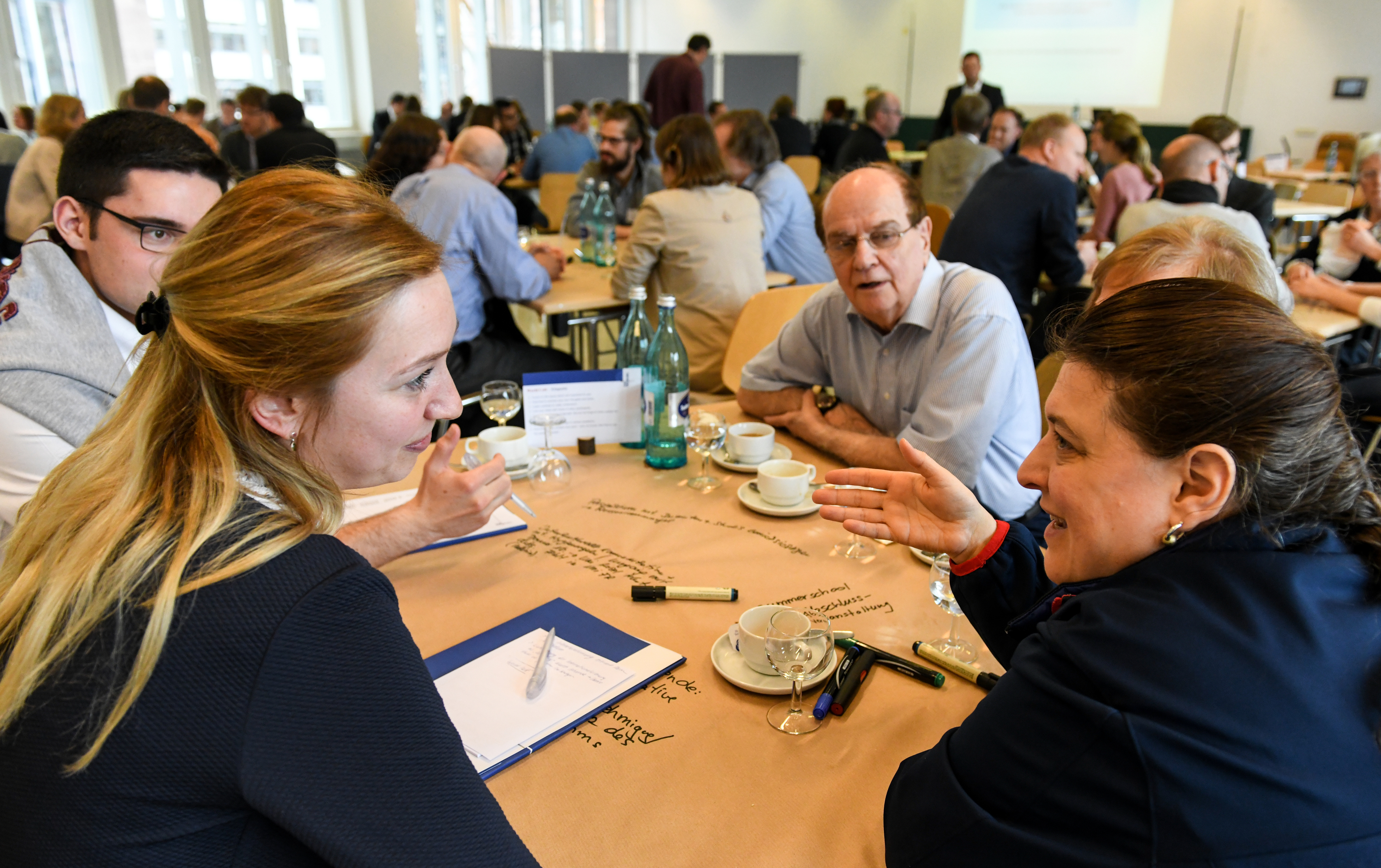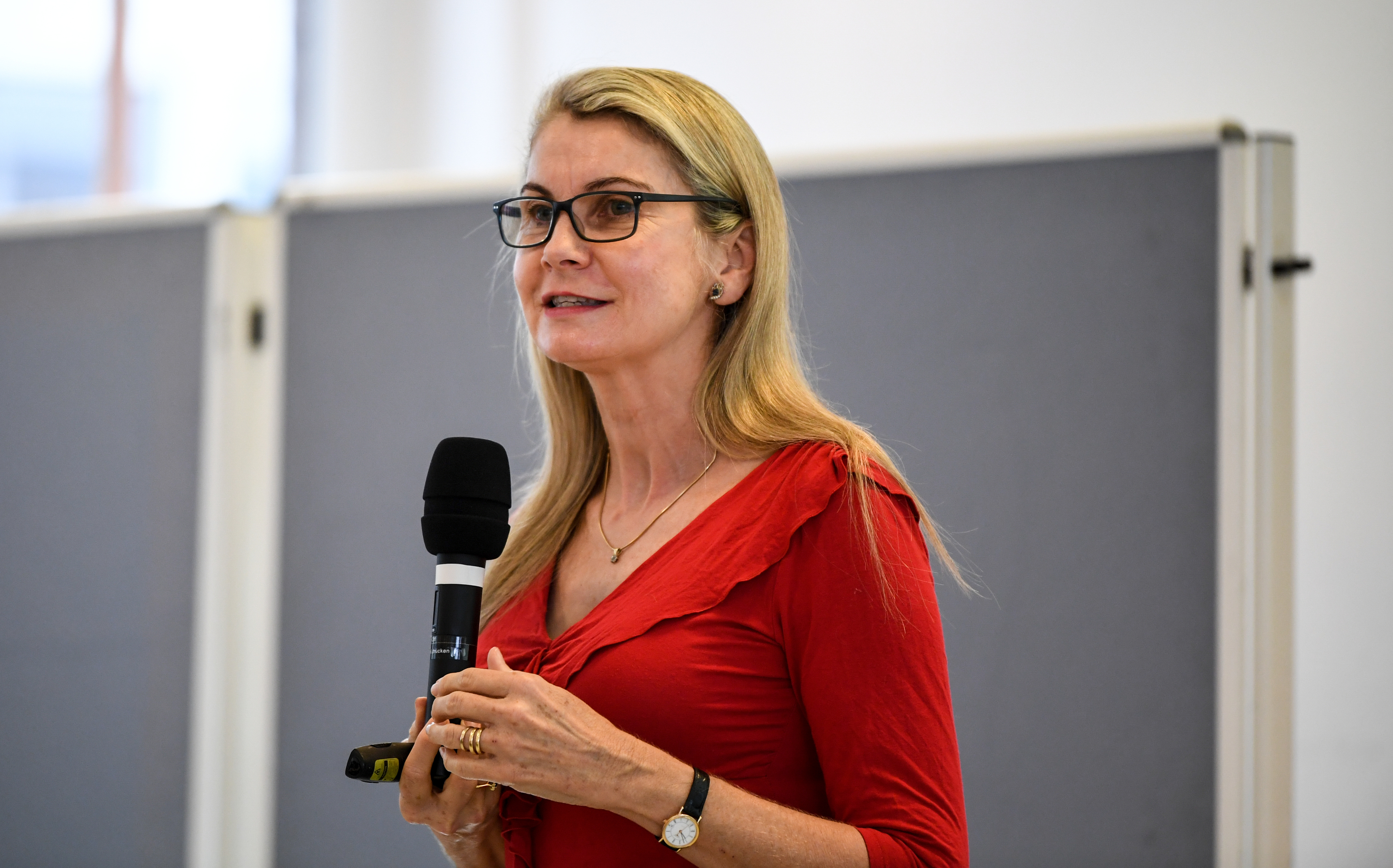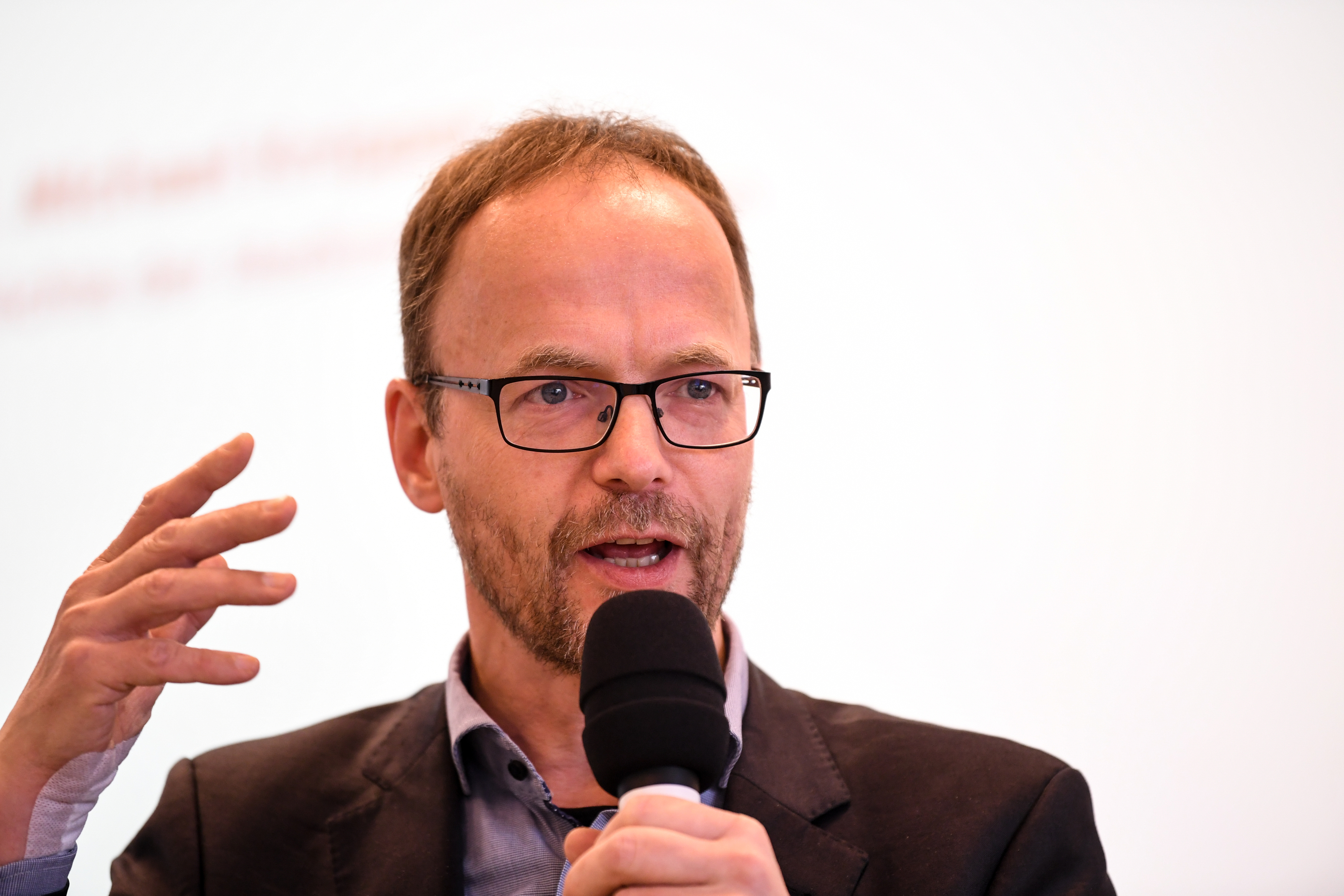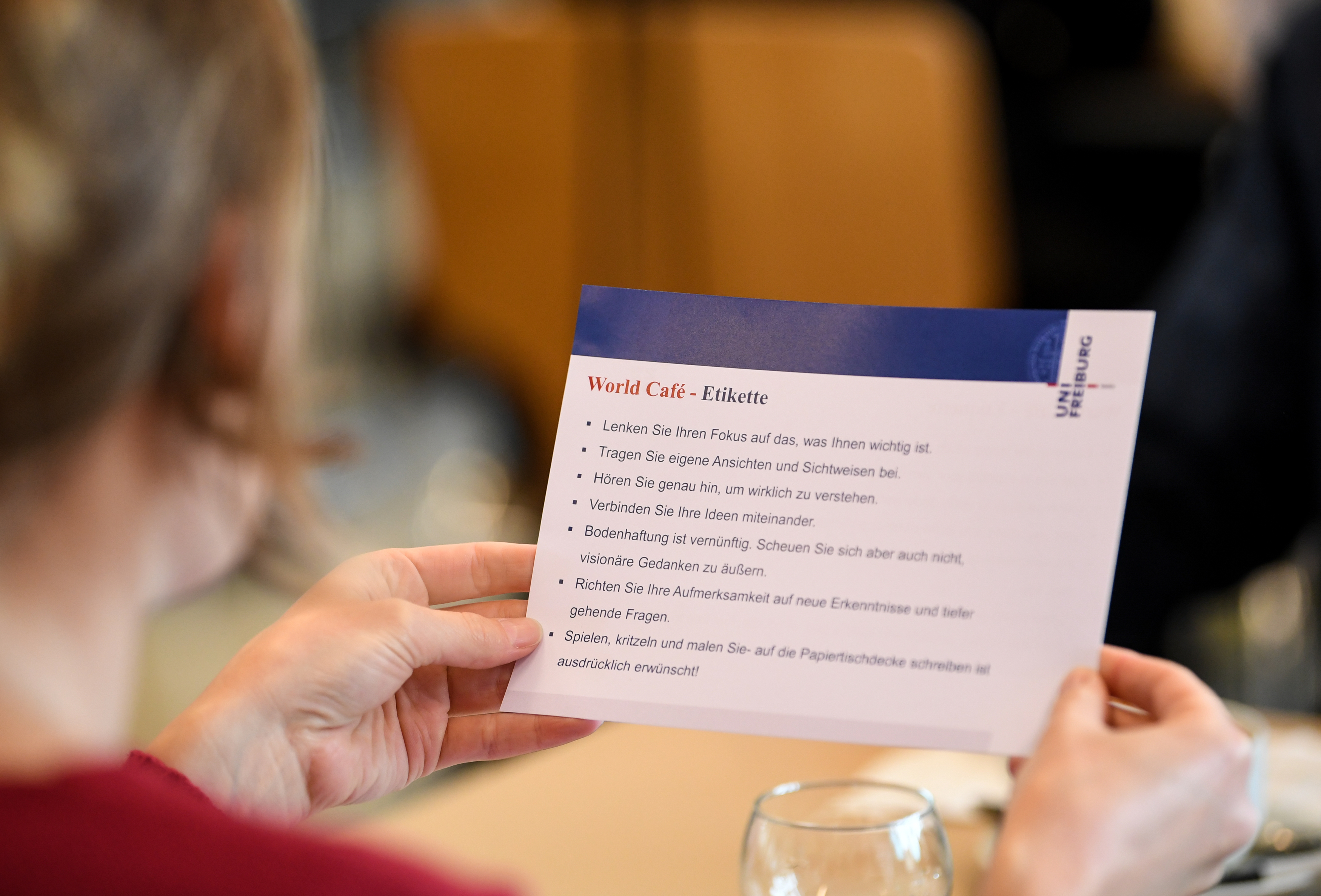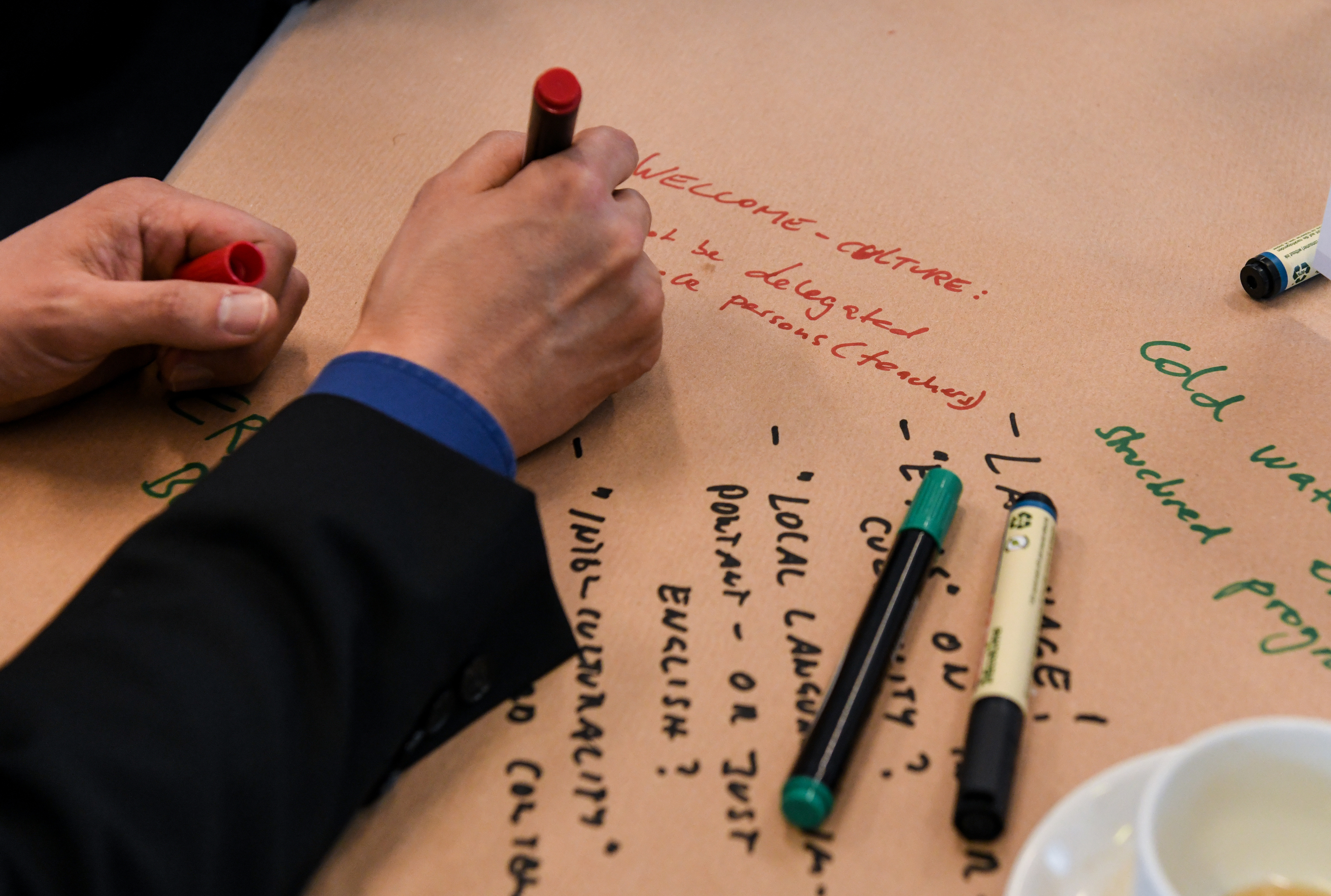Day for International Learning and Teaching, 9 April 2018
It was a day filled with a lot of activities: Opening remarks were delivered by Rector Hans-Jochen Schiewer and by Vice-President for Academic Affairs Juliane Besters-Dilger. Two inspiring keynotes began the event in the morning, followed by an interactive discussion among participants during a World Café. In the afternoon six different sessions gave an insight into selected aspects of international learning and teaching. The lunch and coffee break featured a poster exhibition that showed good practices and already implemented project ideas. At the market place of ideas participants encountered University of Freiburg's department providing services for international learning and teaching.
|
Fotos: Patrick Seeger |
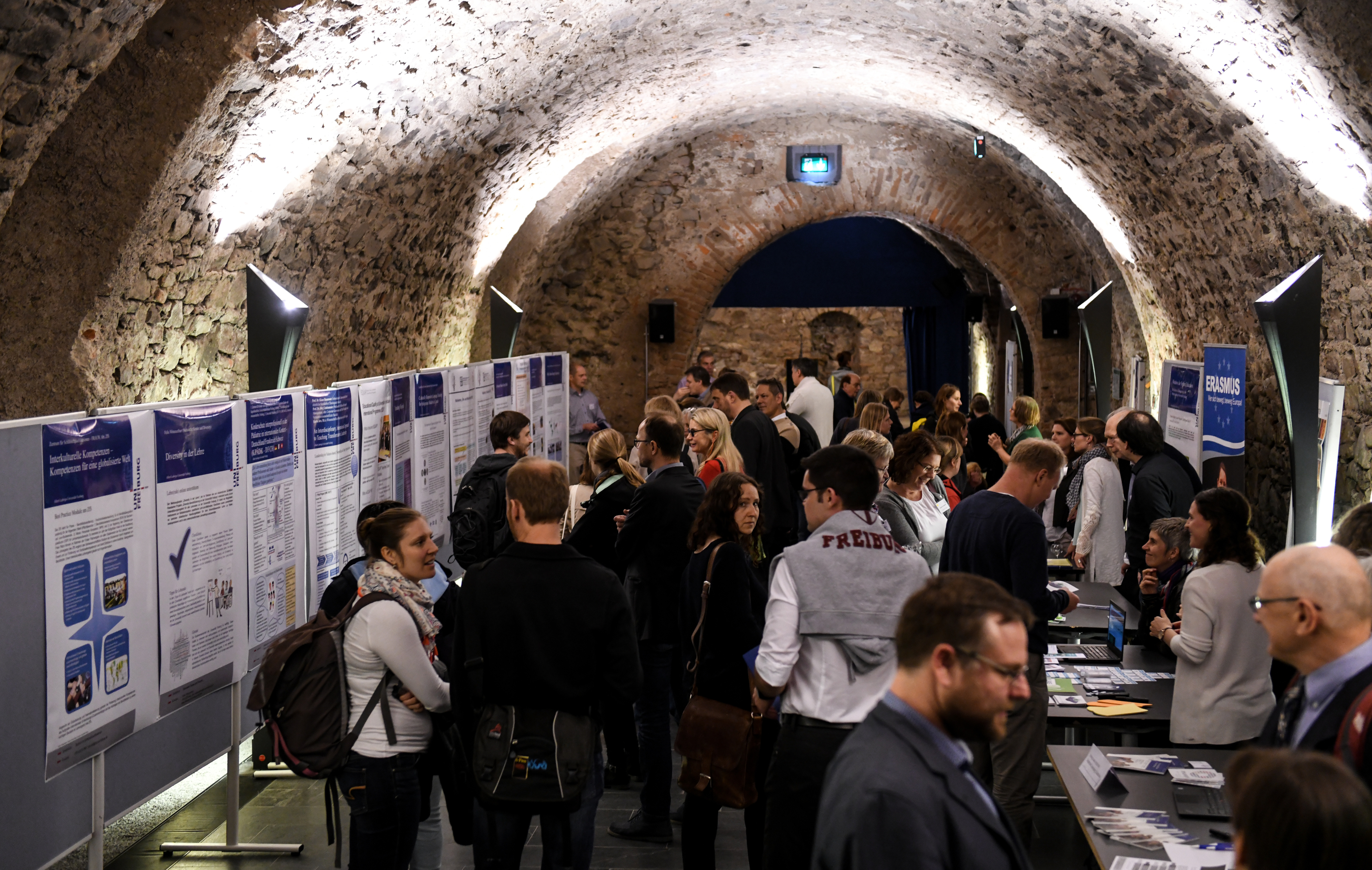 |
The final panel and plenary discussion has stressed one aspect in particular: A single event is not enough to cover the topic at full length. If you would like to engage in further discussions about international learning and teaching in the future, please feel free to declare your interest to: Kathrin Jehle, International Office, Strategy Team via kathrin.jehle@io.uni-freiburg.de.
For those who were not able to participate on April 9, 2018, or for those who would like to look back on the event, it is possible to retrieve the outcome of the Day for International Learning and Teaching in the following.
Keynotes
|
Michelle Barker, Griffith University, Australia Beyond alphabet soup: IoC, I@H, and the challenge of developing interculturally capable students |
|
|
Michael Knipper, Universität Gießen, Germany Was bedeutet die Internationalisierung der Curricula – zum Beispiel für die Medizin? |
Fotos: Patrick Seeger |
World Cafè
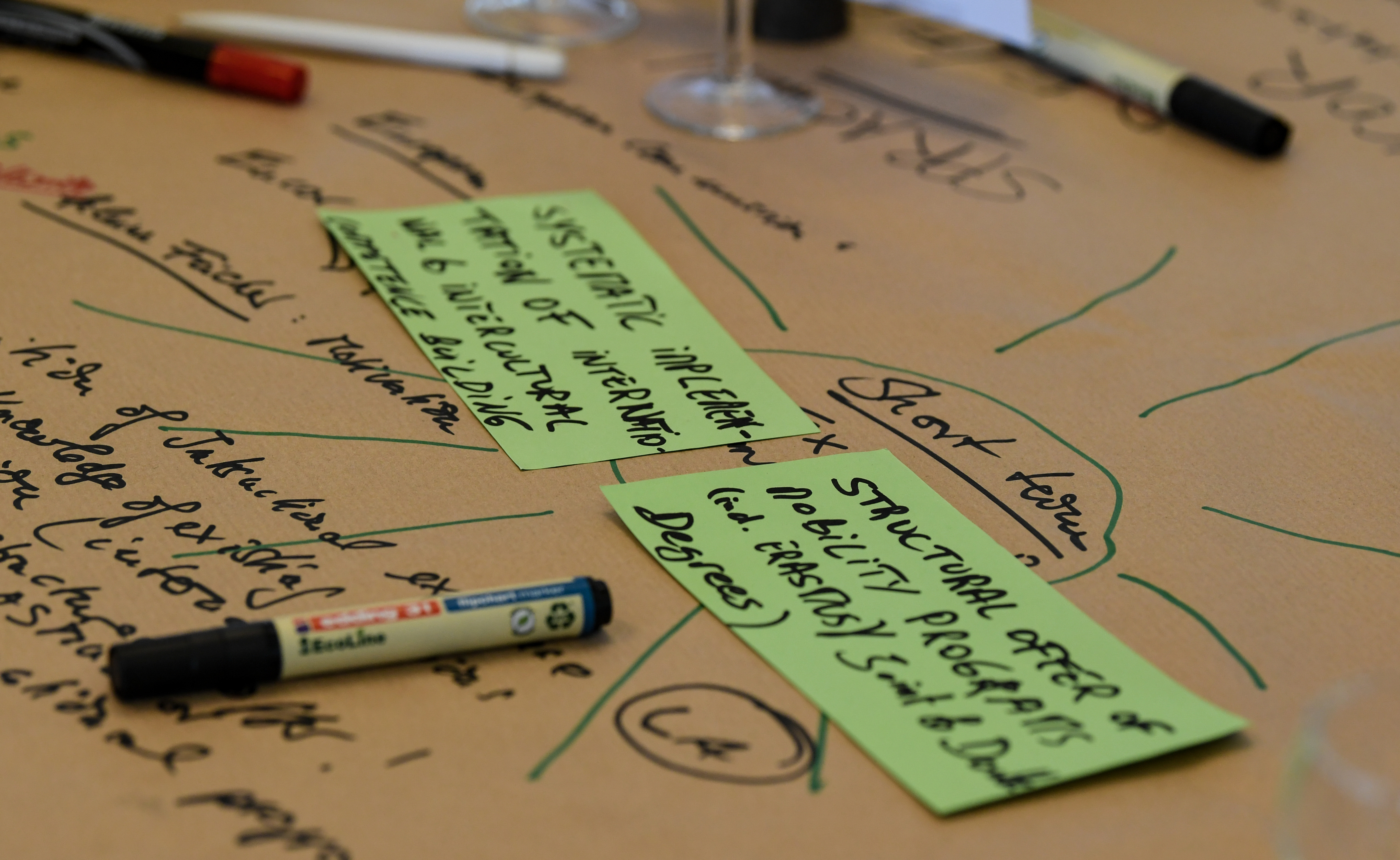 |
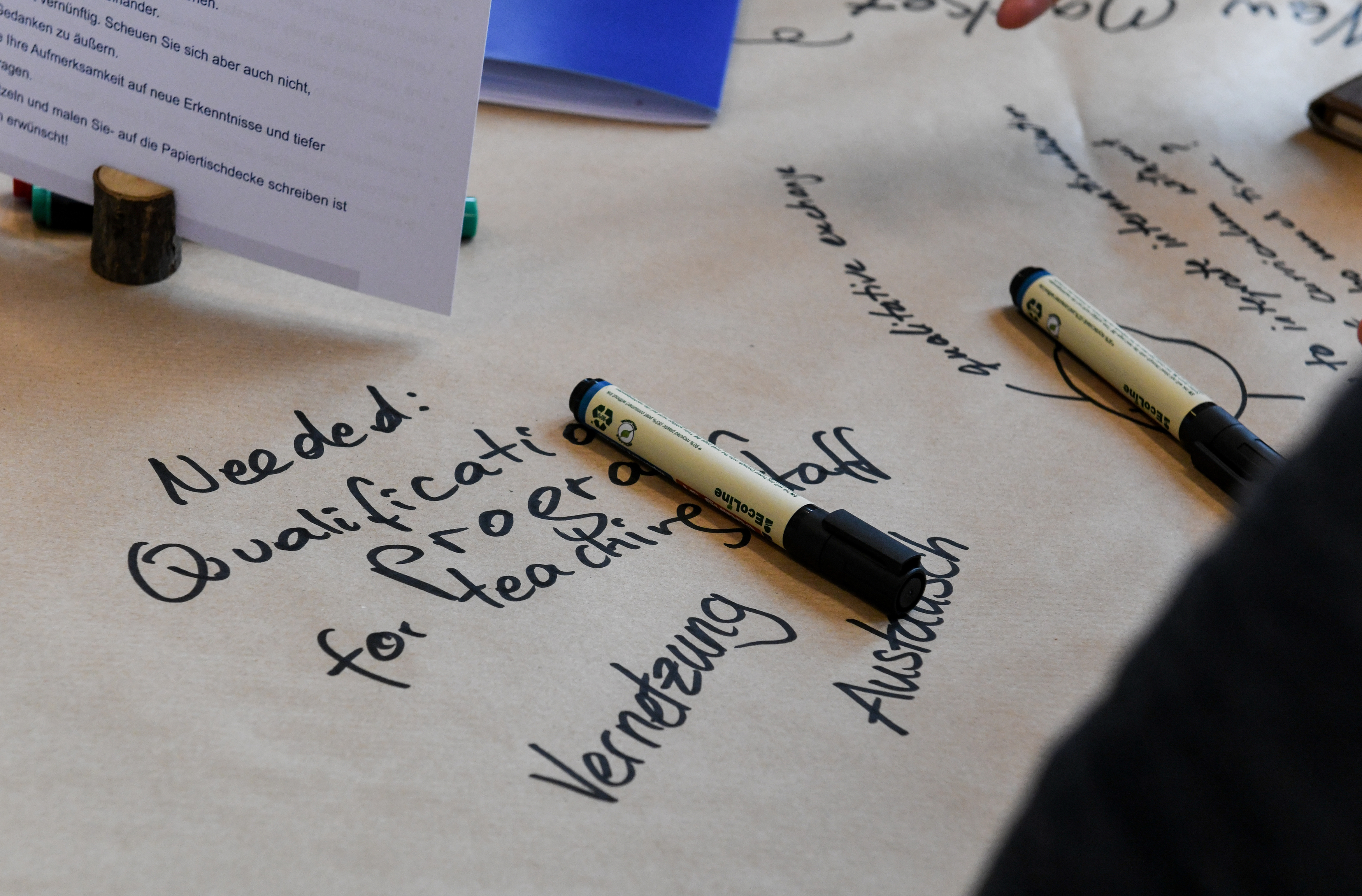 |
|
|
|
Fotos: Patrick Seeger
Afternoon Sessions and Workshops
1. Digitalization as a facilitator for change in higher education
Considering e-learning methods and tools as an opportunity to facilitate joint seminars or even joint study programs with partner universities worldwide, international learning and teaching could become easier than never before. What challenges should be considered and how can they be solved?
Presentations
2. International Learning and Teaching within Eucor – The European Campus
The partner universities of Eucor – The European Campus of the Upper Rhine region are neighbors. They can complement one another's learning and teaching by giving way to a intercultural perspective in different higher education systems in three countries at the same time. How is cooperation possible? Three consortia shared their experiences.
Presentations
3a. Internationalization of the Curriculum
How can an open and global perspective be integrated into the structure and the contents of a study program? What should the environment of such an international classroom be? Are spending one semester abroad and attracting students from all over the globe really sufficient measures for attaining that goal?
Both Maastricht University and the University College Freiburg shared best practices and experiences with participants.
Presentations
3b. English taught courses and their added value for the curriculum (BA and MA)
How can English taught courses bring added value to a study program? Which challenges are to be met if a program is offered completely in English? The English taught G30 study programs at Nagoya University serve as an international example.
Presentations
3c. Joint (Degree) Programs: definition, added value and how to
What is a joint program all about and what are its benefits? This session presented best practices and tools which will lead to a better understanding of developing and implementing joint study programs with partner universities. This session also tackled challenges related to awarding a joint or double degree.
Presentations
4. Teaching in the International Classroom
The session explored different styles of intercultural and international teaching. It had been designed as an interactive workshop especially for teaching staff and it also featured a short presentation of the Intercultural Mentoring Program.
Facilitators: Dorothea Rösch, Project "More success in the study entry phase. Interculturality and non-traditional students", Language Teaching Center Freiburg, Susanne Gundermann and Gregg Dubow, English Medium Instruction, Language Teaching Center Freiburg
Poster Exhibition
- Arbeitsbereich Caritaswissenschaft und christliche Sozialarbeit und Lehrstuhl für Public and Nonprofit Management: “An Interdisciplinary, International Approach to Teaching Transformative Leadership“
- Department of North American Studies: “Culturally Responsive Language Teaching for Indigenous Students in Canada”
- English Medium Instruction EMI (Sprachlehrinstitut/Language Teaching Centre (SLI): “Professional Development and Training for Teaching in English with an International Student Body”
Departments providing support for international learning and teaching at the University of Freiburg
- EU Office
- Freiburg Academy for Continuing Education (FRAUW)
- Intercultural Mentoring
- International Office and Legal Department for Academic Affairs
- Department for Didactics
- Department for Instructional Development
- Counselling and psycho-social support
- E-Learning Service Center


